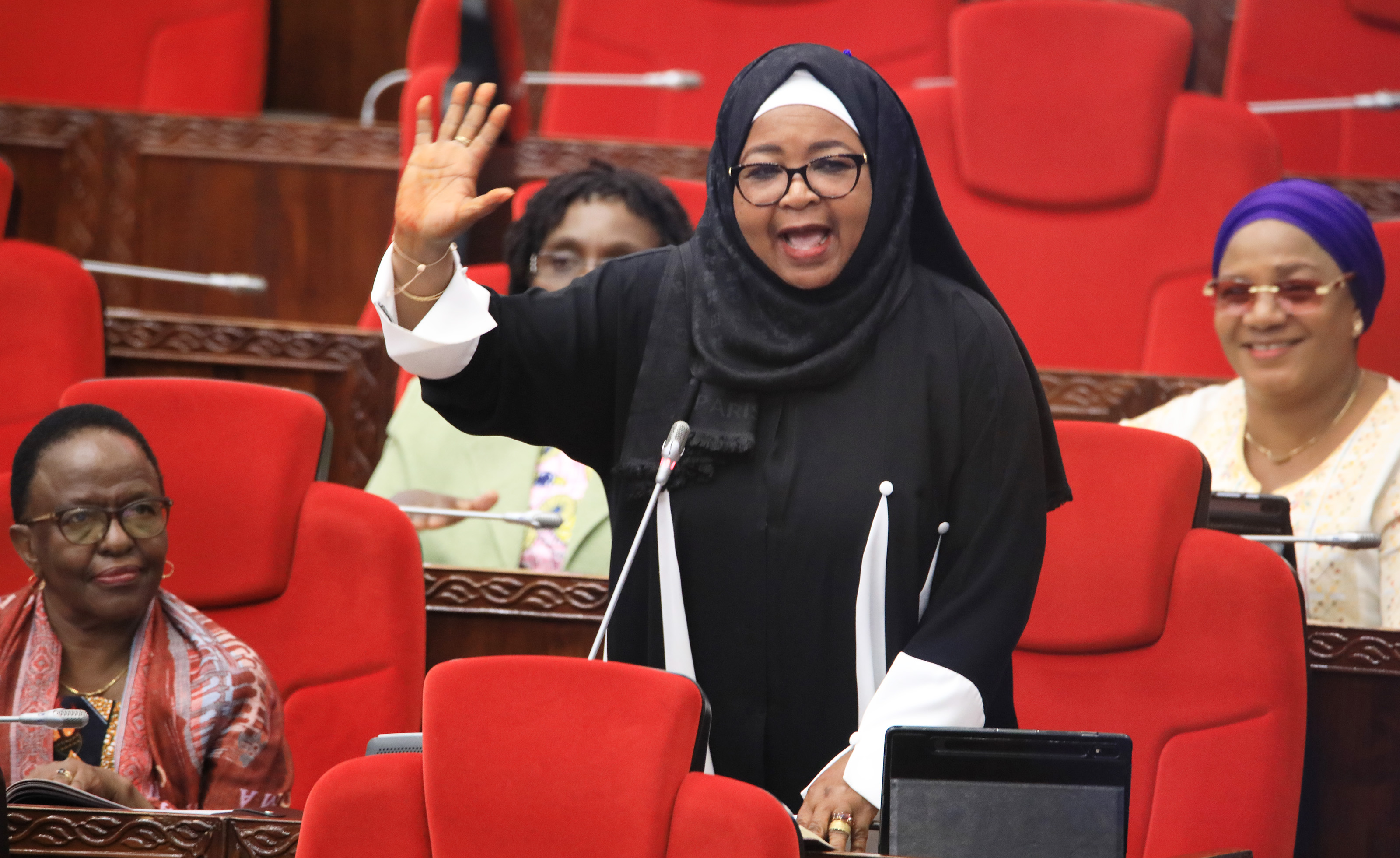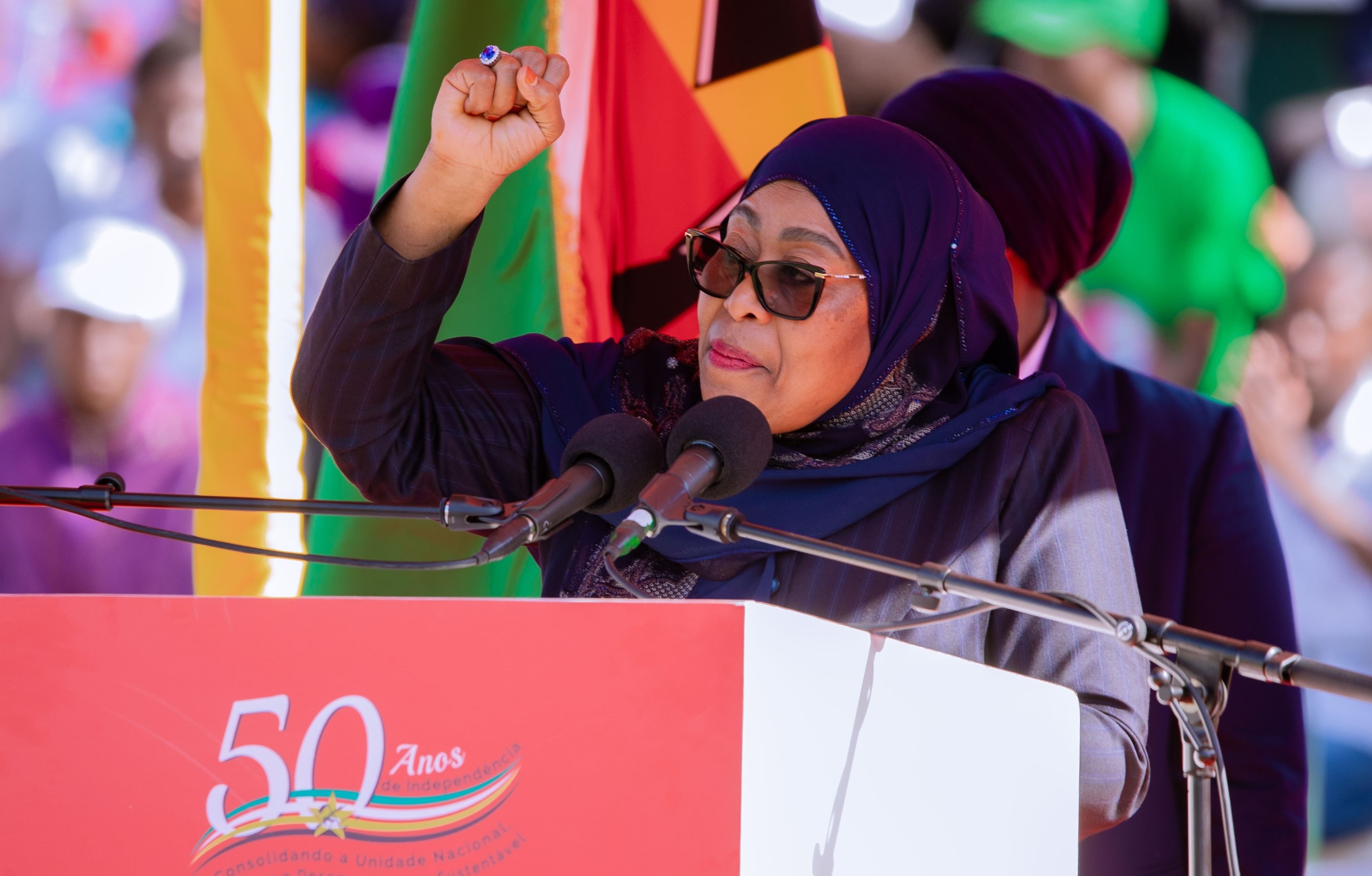Hope as govt amends contentious tax proposals

Mchinga MP Salma Kikwete debates the Finance Bill, 2025 in Parliament in Dodoma on June 25, 2025. The House passed the Bill. PHOTO | EDWIN MJWAHUZI
What you need to know:
- The decision follows pushback from lawmakers, stakeholders and the Parliamentary Budget Committee, raising hopes for a more inclusive fiscal environment
Dodoma. The government has agreed to amend several contentious tax proposals that had ignited a heated debate during the past one week since the presentation of the Sh56.49 trillion national budget on June 12, 2025.
The decision follows pushback from lawmakers, stakeholders and the Parliamentary Budget Committee, raising hopes for a more inclusive fiscal environment.
Finance minister Mwigulu Nchemba announced the changes on Thursday while concluding the debate on the Finance Bill, 2025 in Parliament. He said the amendments reflect the government’s willingness to listen and act on expert advice and public concern.
“We have considered various opinions from Members of Parliament and the committee and have reached a consensus to amend several of the issues raised,” he said.
Among the major revisions, the government dropped a proposal to tax retained earnings that remain unutilised for over six months.
Instead, the threshold has been extended to 12 months, giving businesses more room to reinvest profits without incurring an additional 10 percent withholding tax (WHT).
Another reversal saw the government shelve the introduction of a mandatory $44 travel insurance fee for foreign tourists. Initially planned for immediate effect, the policy will now be implemented in January 2026 to allow for broader industry consultation.
Dr Nchemba also disclosed the government had withdrawn its proposal to amend the Bank of Tanzania Act, following parliamentary objections, and maintained the excise duty on electronic communication services at 17 percent, rather than increasing it.
On the coal taxation proposal, which sparked debate among energy and industrial stakeholders, Dr Nchemba confirmed its removal. “We listened to MPs, and the proposal has been dropped,” he said.
Another amendment involves the Forest Products Levy, where the government lowered its proposed rate from 3.5 percent to 2 percent after considering committee feedback.
“These are just some of the areas where we have incorporated the views of Parliament and the committee. The goal is to ensure the tax regime supports—not hinders—economic growth,” the Minister said.
He further noted that protecting domestic industries was key to the government’s approach. “We’ve found that there are local industries producing nearly double the domestic demand. If we allow substandard or underpriced imports to continue, we risk killing local investment and becoming a net-importing economy,” he warned.
Dr Nchemba stressed that promoting local production, creating employment, and building a self-sufficient economy remain top government priorities.
On the industrial development levy on goods originating from the East African Community (EAC), Dr Nchemba said, “We listened to the views of Members of Parliament, and indeed, we had meetings with finance ministers from the EAC where we came up with those proposals. However, we are now going to take these views into account and work on them accordingly.”
He further stressed that, “We will continue to strive toward the same national goals and targets, even as we take time to revise proposals in response to stakeholder concerns,” he said.
Earlier, Vice Chairman of the Parliamentary Budget Committee, Mr Twaha Mpembenwe, confirmed the government’s flexibility in incorporating committee recommendations into the amendment schedule.
“We commend the government for extending the retained earnings taxation period. This will encourage businesses to reinvest rather than feel pressured to distribute dividends,” he said.
He also praised the decision to delay the tourist insurance fee and remove the industrial development levy on goods originating from East African Community (EAC) partner states, which had threatened to breach regional trade agreements.
“The initial proposal contradicted the East African Common Market Protocol. Its reversal avoids unnecessary tensions and protects Tanzania’s trade relationships,” Mr Mpembenwe told the House.
Additionally, he said the committee’s proposal to include starch in the levy schedule was accepted, reflecting continued efforts to widen the domestic revenue base without harming productive sectors.




